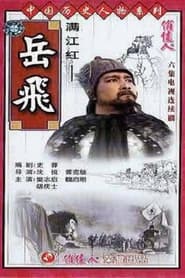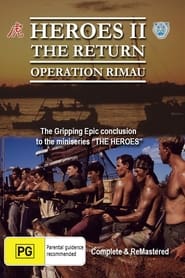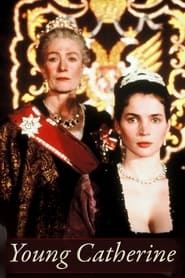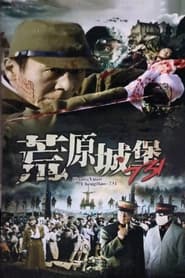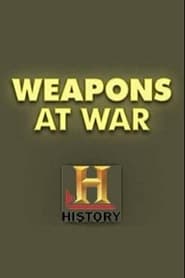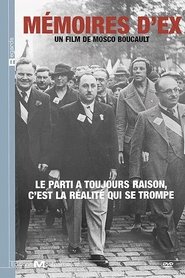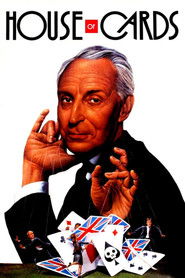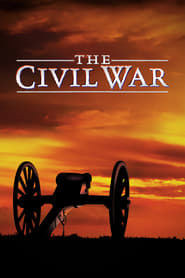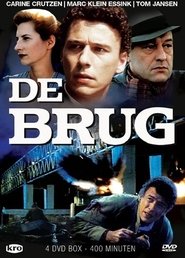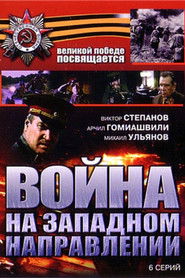New War Politics TV Series - Page 112
-
满江红-岳飞
1992
满江红-岳飞
1992
-
Heroes II: The Return
1991
star 8Heroes II: the Return is a 1991 Australian mini-series about Operation Rimau during World War II. The true and tragic story of Operation Rimau, one of the most daring raids of WW2. In September 1944 Ivan Lyon and 22 Australian and British troops attempted to blow up Japanese ships in Singapore. Just 10 miles away from the target they are discovered and so begin a long and desperate bid to escape to Australia. The series shows how after the war it is revealled that 13 men were killed during the pursuit and that the remaining 10 were murdered by the Japanese in a war crime. Tragically this was covered up and their killers were never charged while the men themselves never received any honours for their heroism. -
The Winter War
1991
-
The Complete Churchill
1991
Written and presented by Martin Gilbert, Sir Winston Churchill's official biographer and the author of Churchill: A Life, The Complete Churchill is a treasury of rare newsreel clips and interviews with Churchill's family, staff, and political contemporaries, both the supporters and the detractors. -
Eyes of Dawn
1991
Eyes of Dawn
1991
star 9During the Japanese control of Korea during WWII and before, they used Korea women as prostitutes for their Military Officers and Korean men as grunt soldiers to fight in the trenches during the war with the USA. -
Chanakya
1991
Chanakya
1991
star 8.8Chanakya is a 47-part epic Indian television historical drama. The series is a fictionalized account of the life and times of 4th century BCE Indian economist, strategist and political theorist Chanakya and is based on events occurring between 340 BCE and 321/20 BCE, starting with Chanakya's boyhood and culminating in the coronation of Chandragupta Maurya. -
Soldier Soldier
1991
Soldier Soldier
1991
star 6.6The daily lives of a group of soldiers in 'B' Company, 1st Battalion The King's Fusiliers. -
Mobile Suit Gundam 0083: Stardust Memory
1991
star 7.6It is the year 0083 of the Universal Century. The rebellious Principality of Zeon has been defeated in the One Year War by the Earth Federation. However, a faction of Zeon remnants led by Aguille Delaz fled from the final battle, hiding themselves away. After three long years, they attempt to rise up once more, sending Delaz’s ace pilot, Anavel Gato, to infiltrate a Federation research base to steal one of two secretly developed prototype Gundams along with its deadly nuclear warhead. Threatened by the rogue Gundam suit and seeking to retain peace, the Earth Federation mobilizes the newly developed Albion carrier to recover the stolen unit. Manned by the remaining test pilots, with rookie pilot Kou Uraki piloting the remaining prototype Gundam, the Albion and her crew are determined to stop Gato, retake the stolen Gundam, and prevent the Zeon remnants from starting another war. -
Le Roi mystère
1991
Le Roi mystère
1991
-
End of Innocence
1991
End of Innocence
1991
star 5End of Innocence is a two-part television film that focuses on the work of the German Uranium Association during World War II. At Farm Hall in England, the ten German nuclear scientists interned there as part of Operation Epsilon learn of the dropping of the first atomic bomb on Hiroshima in August 1945. In flashbacks, the development of the German uranium project is recapitulated chronologically from the discovery of nuclear fission by Otto Hahn to the work of Kurt Diebner at the Heereswaffenamt to the experiments of the Kaiser Wilhelm Institute for Physics under Werner Heisenberg and Carl Friedrich von Weizsäcker at the Haigerloch research reactor in spring 1945. -
Young Catherine
1991
Young Catherine
1991
star 5.7A Prussian princess is chosen to marry the heir to the Russian Throne, but faces plots and intrigues against her. -
Son of the Morning Star
1991
star 6.8The story of George Custer, Crazy Horse and the events prior to the battle of the Little Bighorn, told from the different perspectives of two women. -
Los jinetes del alba
1991
Los jinetes del alba
1991
star 4.5The inhabitants of Las Caldas, a village in Asturias, in northern Spain, whose life revolves around a sumptuous spa, trace complicated personal relationships while the whole country is inexorably heading towards revolution and civil war. -
荒原城堡731
1991
荒原城堡731
1991
-
Weapons at War
1991
-
Mémoires d'ex
1991
Mémoires d'ex
1991
-
House of Cards
1990
House of Cards
1990
star 8.1Frustrated at a new moderate Conservative government and deprived of a promotion to a senior position, chief whip Francis Urquhart prepares a meticulous plot to bring down the Prime Minister then to take his place. -
The Civil War
1990
The Civil War
1990
star 7.9A documentary on the American Civil War narrated by Ken Burns, covering the secession of the Confederacy to the assassination of Abraham Lincoln. -
Brug, De
1990
-
War in the Western Direction
1990
star 6A military epic based on Ivan Stadnyuk's novel of the same name about the tragic events of the first months of the WWII.
 Netflix
Netflix
 Amazon Prime Video
Amazon Prime Video
 Apple iTunes
Apple iTunes
 Apple TV Plus
Apple TV Plus
 Disney Plus
Disney Plus
 Google Play Movies
Google Play Movies
 Paramount Plus
Paramount Plus
 Hulu
Hulu
 HBO Max
HBO Max
 YouTube
YouTube
 fuboTV
fuboTV
 Peacock
Peacock
 Peacock Premium
Peacock Premium
 Amazon Video
Amazon Video
 The Roku Channel
The Roku Channel
 AMC+
AMC+
 Kocowa
Kocowa
 Hoopla
Hoopla
 The CW
The CW
 Vudu
Vudu
 Starz
Starz
 Showtime
Showtime
 PBS
PBS
 Pantaflix
Pantaflix
 FXNow
FXNow
 Tubi TV
Tubi TV
 Kanopy
Kanopy
 Comedy Central
Comedy Central
 Crunchyroll
Crunchyroll
 Microsoft Store
Microsoft Store
 Redbox
Redbox
 Sun Nxt
Sun Nxt
 ABC
ABC
 DIRECTV
DIRECTV
 Crackle
Crackle
 Fandor
Fandor
 Plex
Plex
